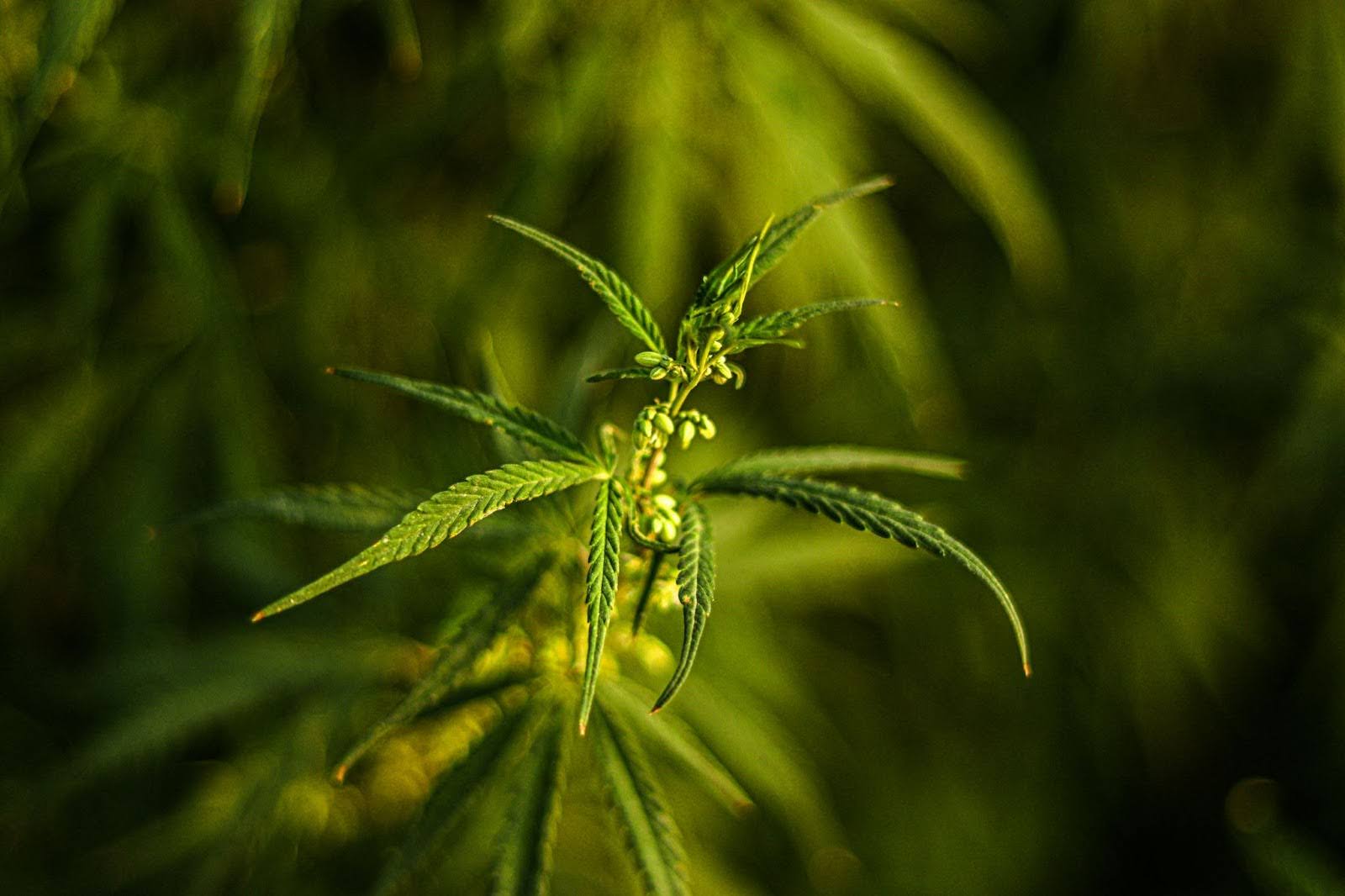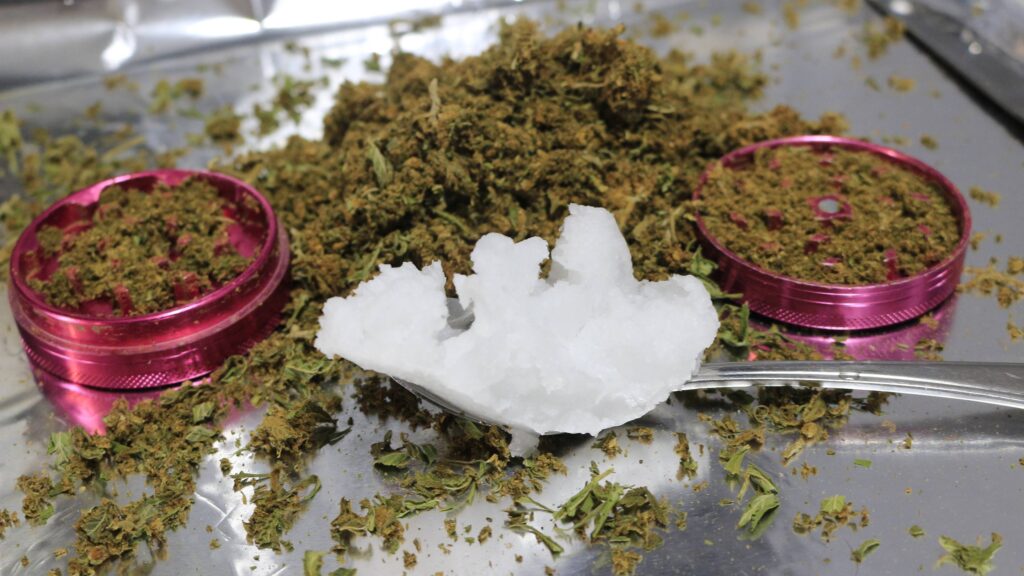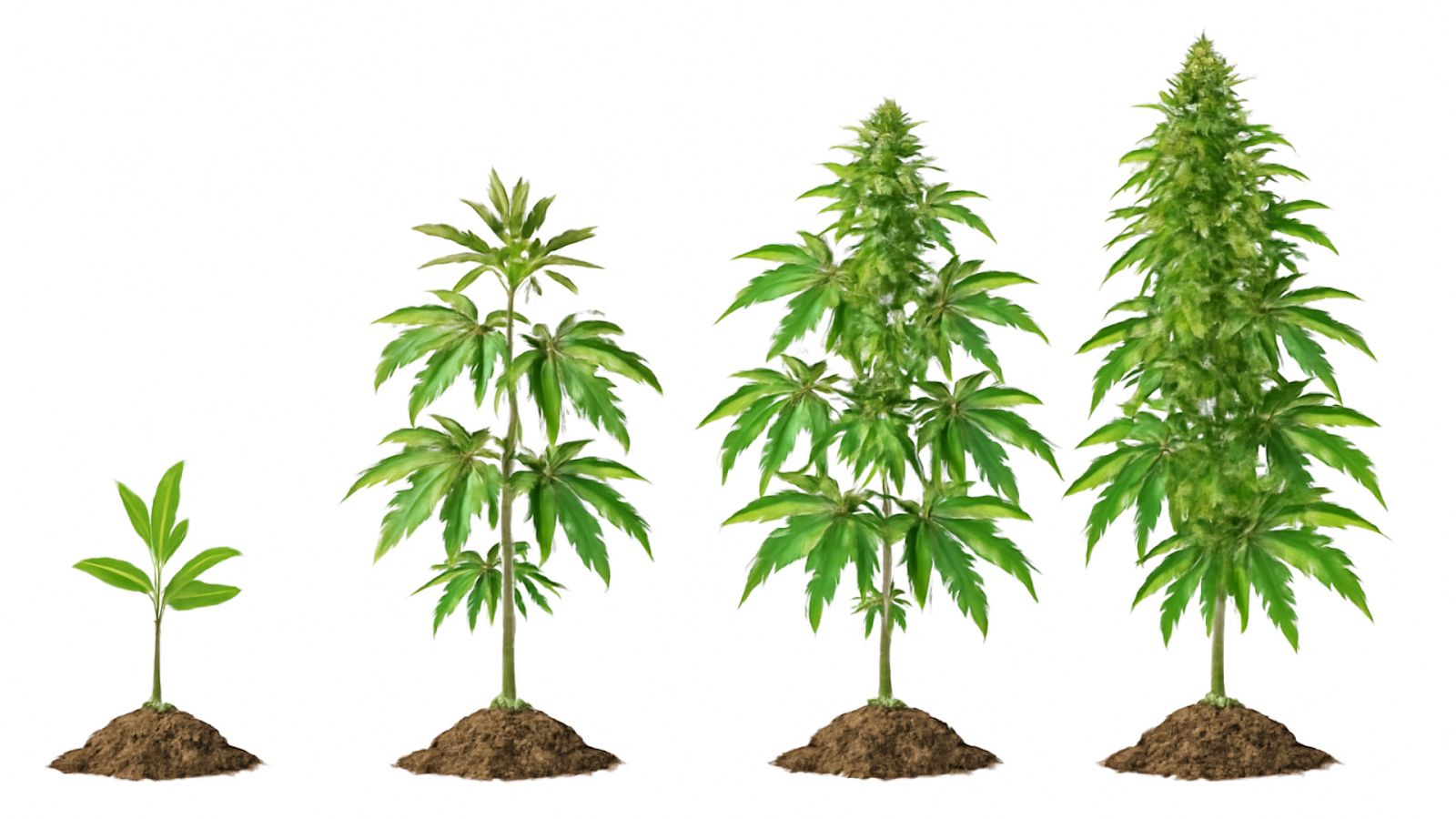Is your cannabis really clean or just cleverly marketed? As a grower, you’ve probably asked yourself that, especially if you're working to cultivate responsibly and stand out in a crowded market. Cannabis should offer relief, relaxation, or creative clarity, not come loaded with hidden pesticides or synthetic residues.
That’s where the idea of organic cannabis really matters. Maybe you’ve seen other growers use the term to gain an edge. Maybe clients ask for it by name. But what does "organic" actually mean in cannabis cultivation? Is it just another marketing buzzword, or is it a standard worth chasing?
This isn’t just about labels. It’s about growing with integrity, protecting your end users, and building a reputation rooted in trust, transparency, and long-term sustainability.
Let’s break it down and explore what makes organic cannabis different and why it might just be the smarter choice for you.
Characteristics and Qualities of Organic Cannabis
Organic cannabis isn’t just about skipping synthetic fertilizers. It’s a complete shift in how you grow, process, and deliver your product. It means rethinking every input, every method, and every decision, from soil health to post-harvest handling, with purity, sustainability, and transparency at the core. You’re choosing a product that reflects high-integrity farming and clean cultivation.
Here are the defining qualities that set organic cannabis apart:
- No Synthetic Additives: Organic cannabis is grown without chemical fertilizers, synthetic pesticides, or herbicides. You won’t find residues of lab-made substances, heavy metals, or genetically modified organisms. This means your customers will be as close to nature as it gets.
- Living Soil and Natural Inputs: Instead of chemical solutions, growers use living soil rich in microorganisms and nutrients. This supports healthy plant development and contributes to stronger cannabinoid and terpene profiles.
- Natural Pest Control: Organic growers rely on integrated pest management techniques such as beneficial insects, neem oil, and companion planting. These methods reduce pest problems without damaging the plant or the soil.
- Sustainability at the Core: Organic farming emphasizes long-term soil health, water conservation, and waste reduction. These sustainable choices reduce environmental harm and reflect a bigger-picture mindset.
- Handcrafted and Small-Batch Production: Many organic cannabis farms operate on a smaller scale, allowing for more attention to detail and individualized care. This leads to a more artisanal product that reflects passion and precision.
- Avoidance of Irradiation and Harsh Processing: Unlike some commercial cannabis that may undergo irradiation or aggressive processing to meet compliance, organic cannabis retains more of its natural characteristics because it's handled more gently throughout the process.
- Stronger Terpene Retention: Because organic methods avoid stress-inducing chemicals and promote healthy plant growth, the resulting cannabis typically features a richer and more diverse terpene profile, which enhances aroma, flavor, and potential therapeutic effects.
Now, let us understand the various benefits of organic cannabis in detail below.
Benefits of Organic Cannabis
When you choose to grow organic cannabis, you’re not just cultivating healthier plants. You’re also contributing to a cleaner and more sustainable environment. By avoiding synthetic pesticides, harmful chemicals, and artificial fertilizers, you ensure that your crop is pure, natural, and high in quality. As a grower, you’ll find that organic practices not only protect the integrity of your product but also support long-term soil health and ecosystem balance.
Exploring the benefits of organic cultivation helps you align your growing methods with your values and deliver a cleaner experience to your consumers.
Health and Safety Benefits
With stricter cultivation standards and cleaner production methods, organic cannabis is designed with your consumer's well-being in mind.
Here’s how growing organic cannabis benefits health and safety, both for you as a cultivator and for your end users:
- Stricter Testing and Compliance: When you commit to organic methods, you’re held to more rigorous testing standards as a grower. Your harvest is routinely screened for mold, mildew, heavy metals, and residual solvents. This keeps your product in line with evolving regulations and adds credibility to your operation.
- No Chemical Residues in Your Grow: Avoiding synthetic fertilizers and pesticides minimizes the risk of chemical accumulation in your soil, plants, and ultimately, the consumer’s body. Clean practices from seed to sale build a healthier brand and healthier outcomes.
- Reduced Contamination of Soil and Water: By going organic, you significantly cut down on harmful runoff. This protects not only your crop but the environment around your grow site. Cleaner soil equals cleaner cannabis — and a long-term investment in your land.
- Safer for Growers and Farm Workers: You and your team aren’t exposed to dangerous agricultural chemicals, which means fewer health risks during cultivation. No protective hazmat gear, no toxic fumes — just a safer working environment.
- Trusted by Medical Consumers: Patients with heightened sensitivities often seek organically grown cannabis because they can’t risk exposure to synthetic additives. Organic methods help you confidently meet that need if you're producing for the medical market.
- Aligns With Wellness Brands: More retailers and processors are prioritizing clean inputs. Growing organic gives you an advantage when partnering with health-conscious companies that want to label their edibles, oils, or topicals as clean from source to shelf.
- Peace of Mind as a Grower: At the end of the day, knowing you’ve cultivated cannabis without cutting corners reinforces pride in your work. Organic growers are often more satisfied knowing their crop supports health, not harm.
Environmental Advantages
If you care about the planet, organic cannabis aligns with your values and supports long-term environmental health. Growers who adopt organic practices do more than eliminate chemicals — they build ecosystems that give back to the land.
- Regenerative Farming Techniques: Organic growers often use regenerative methods like composting, mulching, and crop rotation. These practices restore and enrich the soil, creating a self-sustaining environment that promotes healthy plant growth without chemical fertilizers.
- Biodiversity Through Companion Planting: Instead of monoculture fields, organic cannabis farms use companion planting strategies. Planting herbs, flowers, and other crops alongside cannabis can naturally repel pests, attract pollinators, and improve soil structure.
- Reduction in Soil and Water Pollution: By avoiding synthetic pesticides and fertilizers, organic cultivation prevents harmful runoff that can contaminate nearby water sources and degrade local ecosystems.
- Lower Carbon Footprint: Organic operations often rely on more energy-efficient methods, including hand labor and renewable inputs. Many also reduce or recycle waste, reducing emissions and landfill use.
- Healthier Ecosystems Around the Grow Site: A focus on soil health, native plants, and minimal disruption allows the surrounding wildlife to thrive. Birds, insects, and microorganisms benefit from a cleaner, more balanced environment.
- Long-Term Land Viability: Organic cultivation protects the future usability of farmland. Soil that’s alive with beneficial microbes and nutrients will continue to support crops for years to come — a major advantage over chemical-reliant farming that often depletes land.
Improved Product Quality
There’s a noticeable difference in quality when cannabis is grown organically. From aroma to effect, the end product reflects the care and intention you put into the grow.
- Richer Terpene Profile: As a grower, organic methods help you preserve the plant’s full terpene potential. Terpenes are fragile and easily degraded by synthetic inputs. When you avoid harsh chemicals, your plants retain more of their natural aroma, flavor, and therapeutic value.
- Enhanced Potency and Purity: By building a living soil and supporting microbial life, you set the stage for healthier plants and potentially higher cannabinoid levels. Many organic growers report richer THC and CBD profiles, with fewer contaminants to interfere with potency.
- Visual and Structural Quality: Organic buds often come out denser, more vibrant, and coated in a thick layer of trichomes. These visual cues matter, especially in a competitive market where buyers inspect product quality closely.
- Consistent Results With Every Harvest: Your plants become more resilient and predictable when cultivating in a balanced organic system. Healthy soil, microbial life, and natural inputs provide stability across multiple grow cycles, making it easier to maintain potency, flavor, and aroma from harvest to harvest.
Consumer Trust and Recognition
Building consumer trust is one of the most powerful advantages of growing organic cannabis. Buyers today are more informed and cautious about what they consume, expecting transparency from the growers and brands they support.
- Third-Party Certification Builds Confidence: As a cannabis grower, you might not be able to get USDA organic certification, but that doesn’t mean you're out of options. Reputable third-party certifications like Clean Green and Certified Kind exist specifically for cannabis. These certifications validate your organic practices and show buyers that your operation meets strict purity, sustainability, and product integrity standards.
- Transparency Sets You Apart: Sharing your cultivation practices, from the types of nutrients you use to your pest management methods, builds credibility. Documenting and communicating your organic growing process helps consumers feel connected to the product. This kind of openness turns casual buyers into loyal customers.
- Organic Aligns With Consumer Trends: You’ve probably noticed the growing demand for organic goods across industries. Cannabis is no exception. As a grower, positioning your crop as organic helps you tap into this wellness-focused trend and stand out in a crowded market.
- Glowing Reviews and Word-of-Mouth: People talk about quality, especially when they experience something that feels noticeably better. When your organically grown cannabis delivers smoother smoke, richer flavor, and consistent effects, customers take notice. Their positive reviews and word-of-mouth recommendations can do more for your business than any paid ad.
- Higher Perceived Value: Consumers associate organic cannabis with quality and care. That perception allows you to price your product higher. Maintaining strict organic standards positions your brand as premium, giving you an edge in both retail and wholesale negotiations.
Now, let us discuss some of the challenges that you might face in obtaining an organic certification for your cannabis.
Challenges in Organic Certification
Organic certification isn’t a simple checkbox. Complying with evolving standards takes time, money, and a serious commitment. As a cannabis grower, you need to build systems that meet the demands of both cultivation and accountability, and that can be tough.
- Rigorous Testing Requirements: Regular lab testing for contaminants like heavy metals, pesticides, and mold is a non-negotiable part of organic certification. These frequent tests add to your operational costs and require constant vigilance in your growing practices.
- Detailed Record-Keeping and Documentation: You’re expected to maintain detailed logs of your inputs, pest management techniques, and harvest data. These records are essential for audit trails and certification renewals, and keeping them current is a major time investment.
- Consistency Across Grow Cycles: To stay certified, you must replicate your organic methods every single grow cycle. That means no exceptions, even when facing crop threats or changing weather conditions. It demands discipline and planning at every stage.
Tools like PlanaCan help simplify task scheduling. Using customizable templates, you can define and automate cultivation processes. Each step, from planting to harvest, can be tailored to specific strains or cycles. Once templates are ready, tasks can be scheduled on a calendar with just a few clicks, ensuring a consistent and efficient workflow that supports organic certification.
- Higher Operational Costs: From the labor involved in hand-tending plants to the cost of organic-approved nutrients and pest controls, organic growing is more expensive upfront. But these costs reflect the added value of your crop.
- Certification Isn’t Always Recognized Nationally: Because cannabis is still federally illegal in the US, USDA organic certification is off-limits. That forces you to rely on respected third-party certifiers, which may not have the same level of consumer recognition.
- Limited Resources and Guidance: Unlike traditional agriculture, there are fewer playbooks or institutional support for cannabis growers trying to go organic. You’re often left to navigate the path yourself or rely on peer networks for best practices.
So, what is the economic impact and market potential of organic cannabis? Let us discuss.
Market Potential and Economic Impact
Despite the challenges, the organic cannabis sector is booming. With more consumers asking for clean, sustainable options, the market share continues to grow. This creates real economic opportunities for cannabis growers who commit to cultivating responsibly.
Here’s how the market is working in your favor:
- Increasing Consumer Demand: As more buyers look for organic alternatives in food, skincare, and supplements, cannabis is becoming part of the same conversation. Consumers want to know how their cannabis is grown and are actively choosing organic when it’s available.
- Premium Pricing for Organic Products: Organic cannabis often fetches a higher price. This premium isn’t just about the label, it reflects the labor-intensive, careful methods that went into creating the product. If you grow organic, you can often justify and sustain stronger pricing structures.
- Stronger Profit Margins: While your upfront costs may be higher, the return on investment is real. Loyal customers, repeat business, and word-of-mouth referrals can all drive growth. Selling to wellness brands or health-conscious retailers can further boost margins.
- Expanding Retail Opportunities: Dispensaries and delivery platforms are starting to highlight organic sections or brands. As the category expands, growers who establish themselves early will have a competitive edge.
- Support from the Broader Organic Movement: Being part of the organic movement links your cannabis grow to a much larger trend. This opens the door for crossover marketing, community collaborations, and alignment with eco-friendly organizations.
- Increased Investment Interest: Investors are increasingly drawn to cannabis companies that follow sustainable, transparent practices. Organic growers often stand out because they signal a lower regulatory risk and a more future-proof model
Conclusion
Organic cultivation offers a powerful set of benefits for growers. You’re looking at healthier plants, a cleaner growing environment, higher-quality flowers, and a brand reputation your buyers can trust. It's not just about what you're taking out of your cannabis; it's about everything you've thoughtfully put into it.
The organic cannabis movement is gaining momentum, and you're at the center of it. As someone who demands transparency, sustainability, and quality, you're helping shape a greener future for cannabis in every sense.
To help you make the most of this opportunity, PlanaCan offers advanced tools tailored to your organic cultivation needs:
PlanaCan simplifies task scheduling by allowing you to define and automate cultivation processes using customizable templates. From initial planting to final harvest, you can outline each step of your grow for specific strains or harvest cycles. Once your templates are ready, you can schedule tasks onto a calendar with just a few clicks, keeping your workflow smooth and consistent.
It also gives you a clear visual timeline for planning and tracking your growth. It helps you plan months in advance while also managing daily activities. You can adjust tasks as needed to stay on top of changing conditions. With all your cultivation data in one place, you and your team can stay aligned and ensure nothing slips through the cracks.
By integrating PlanaCan into your cultivation strategy, you can maximize your yields, improve your efficiency, and spend more time doing what you love: growing clean, high-quality cannabis.
Schedule a free call today to see how PlanaCan can support your journey as an organic cannabis grower.




